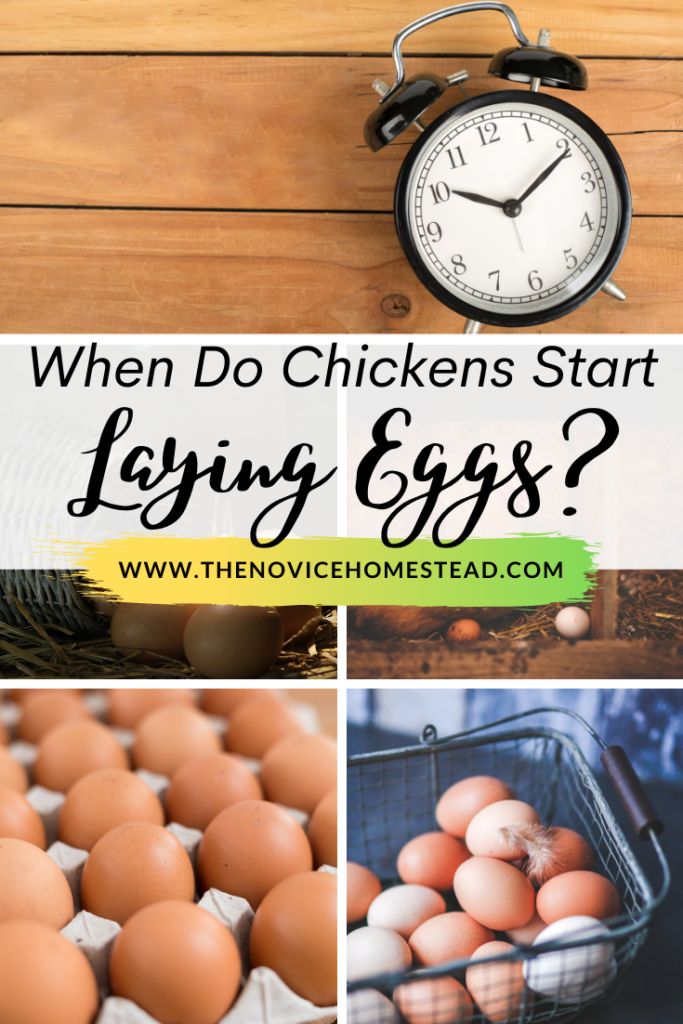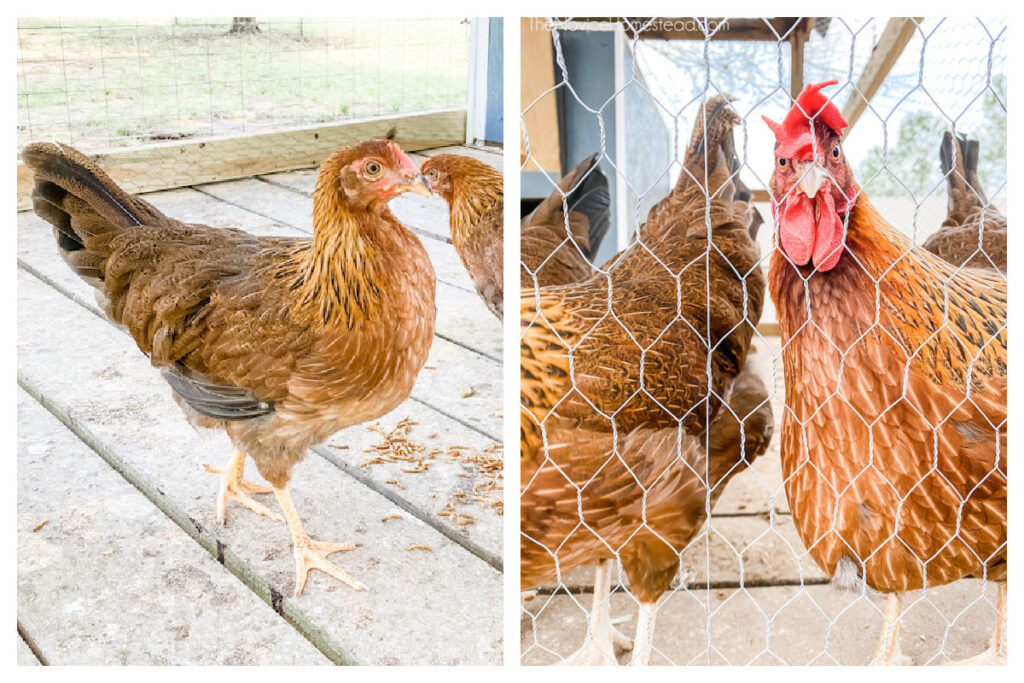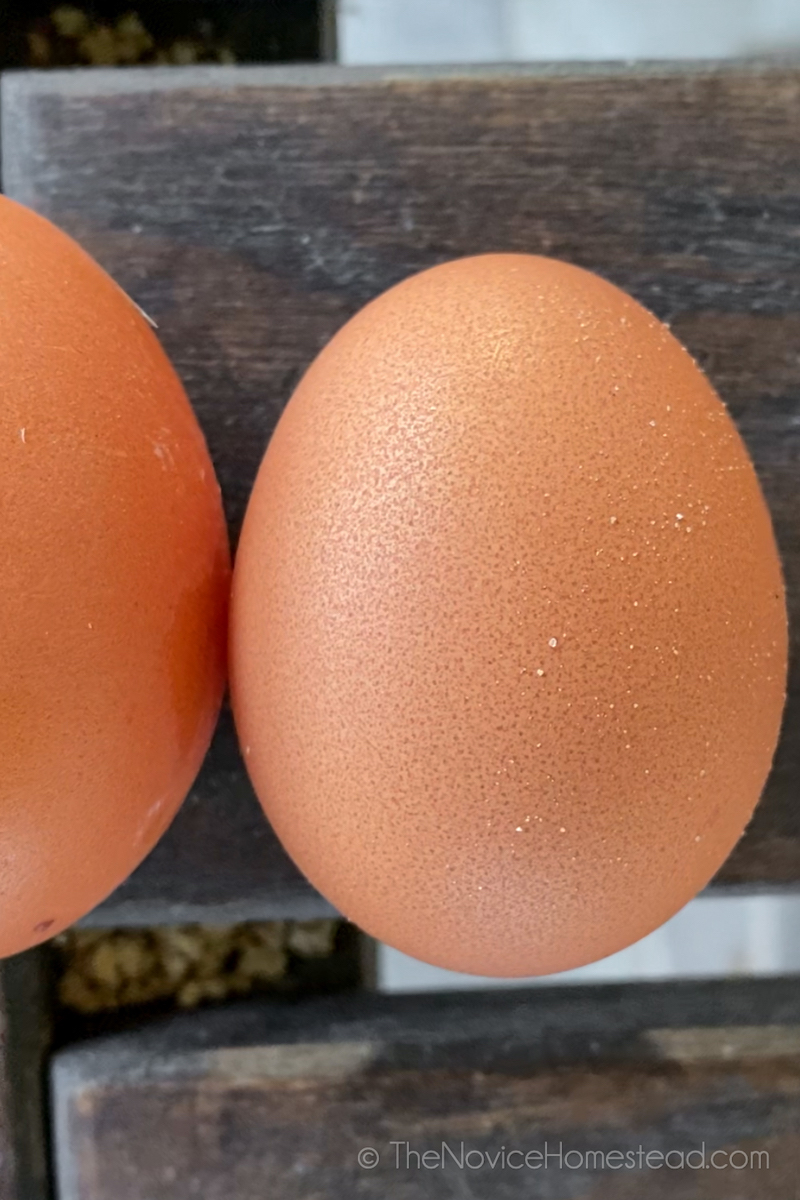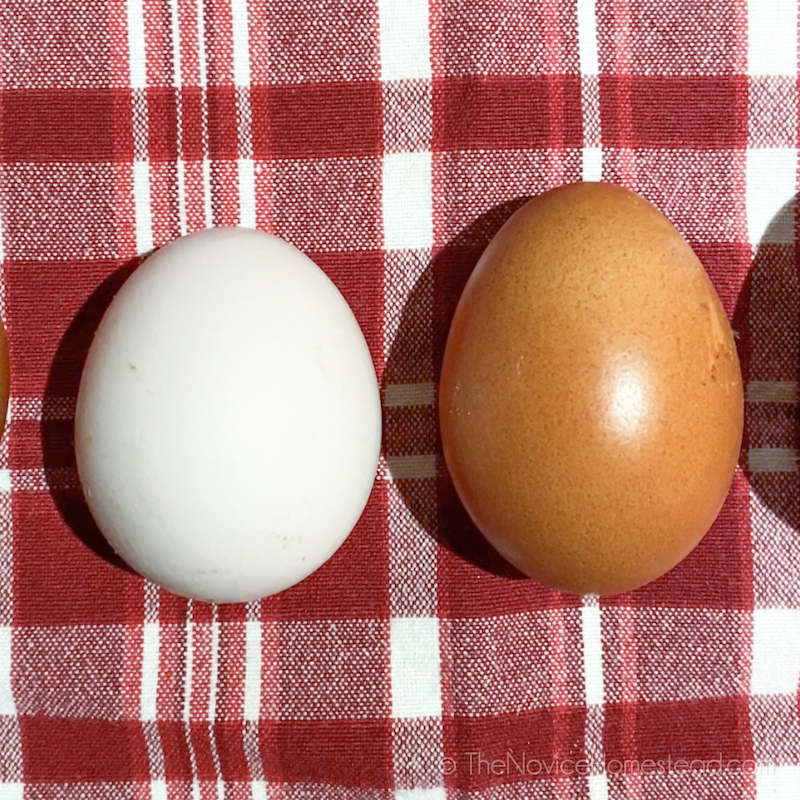When do chickens start laying eggs? Learn the 5 signs to look for that your hens may start to lay eggs soon!

Are My Chickens Defective?
Before we started our flock of hens, I did quite a bit of research and asked a lot of questions. My cousin had raised chickens in her backyard for years, so she was a good source of information.
I’d read that chickens started laying eggs around six months of age, so when that came and went, I started to get worried. My cousin said hers started laying at 4-5 months! Were my chickens defective??
Finally, at around 7 months, we got our first egg! From that point on, our girls have been consistently providing fresh eggs daily for us. But I still remember how hard it was to wait for that first egg!
Related: Click here to learn more about how to store farm fresh eggs!
How Long Does it Take for a Chicken to Lay its First Egg?
On average, chickens start laying eggs around 6 months old. However, this can depend quite a bit depending on breed and individual birds. Just like humans mature differently, so do chickens!
Some breeds may start laying as young as 14-18 weeks. Chickens that lay eggs early include Leghorns, Golden Comets, Sex Links, Rhode Island Reds, and Australorps.
Breeds that may be late bloomers, so to speak, include Wyandottes, Orpingtons, and Barred Rocks.
Interestingly, we have a pair of Barred Rock hens who started laying quite early, by 5 months of age. One of our Dark Brahmas was an early layer too.
Our Welsummers and Buff Orpingtons started much later.
How Do You Know When Chickens are Ready to Start Laying Eggs?
If your chickens are in the right age range, there are a few signs to watch for that they may start laying soon:
1. Physical Changes
Not only do hens continue to grow in size as they get closer to laying age, there are other changes to notice as well.
As a hen matures, her combs and waddles will grow larger and turn a deeper shade of red.

Here is a look at one of our girls at 16 weeks of age (4 months) before she was of laying age, compared to another one at about 9 months old. Look at the difference!
2. Squawkiness
As your hens get older, you may notice that their cute little “cheeps” turn into loud rambunctious squawks. In fact, one of our hens is so loud that we nicknamed her “Squawky!”
Think of growing hens like teenagers…they’re loud and awkward as they get used to their new bodies and hormonal changes.
These noises are quite different from a young rooster’s first crows, which are unmistakeable. Learn more ways to tell the difference between a young hen and a young rooster here!
3. Nesting
When you built your coop, you likely prepared nesting boxes right from the get-go.
As they get ready to start laying, your hens will being to explore those nesting boxes and try to figure out what the heck they are for!
They may go in and out of the boxes, sit in them, toss around all the bedding, and even try to keep other hens out of them! Eventually they’ll figure things out and start using them for their intended purpose.
TIP: Try placing a smooth rock or a golf ball inside the nesting boxes as a “decoy egg” to encourage your hens to lay there too.
4. Appetite
Remember, your ladies are teenagers right now and teenagers are known for being ravenous!
As your hens get close to laying age, they might start to eat more. Maybe even a lot more!
If you haven’t already, make sure to switch your hens to a feed specifically designed for laying age birds to make sure they get the proper nutrient balance.
5. Squatting
If you’ve ever tried to pet one of your chickens and she kind of hunches down and spreads her wings out a bit, this is a good sign that she may be of mature laying age.
Known in the chicken world as the “submissive squat,” this is actually what hens do in order to let a rooster mount them. Even if you don’t keep roosters, instinct tells your ladies what to do.
If you notice that your chickens start to squat when you touch them, get ready to start checking for eggs soon!
Why are the First Eggs So Small?
When chickens lay their first eggs, they are often substantially smaller than a normal egg. There are a few nicknames for these little eggs: pullet eggs, fairy eggs, and even fart eggs!

Sometimes eggs from new layers will be different colors, like this bright white egg laid by one of our Rhode Island Reds (brown egg producers).

As your hens get the hang of the whole egg laying thing, they will start to become consistent in size and color.
Why Hasn’t My Chicken Started Laying Eggs Yet?
If you’re waiting for your hens to start laying eggs, I know how you feel! I’ve been there!
One thing to keep in mind is that if your flock matures in the winter time, they may wait to start egg production until spring. This is more likely to happen if you live in a colder climate.
Related: How Cold is Too Cold for Chickens?
If you’re in a warmer area like we are, it may not get cold enough to affect your hens laying abilities.
There are a few other things that can stop your hens from laying, such as:
- Stress
- Molting
- Illness
- Poor diet